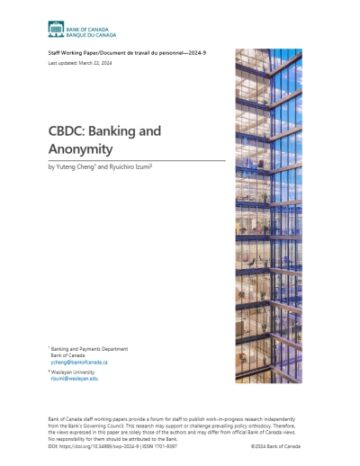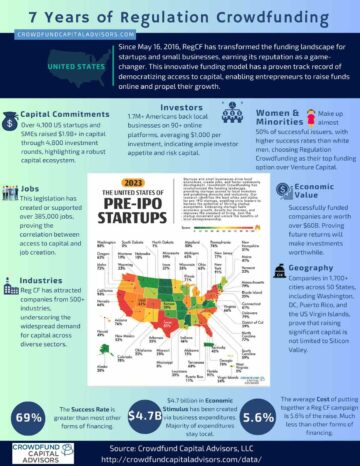Oct 31, 2023
Casinos have always been a popular form of entertainment and gambling, attracting millions of visitors every year. However, the traditional casino experience may soon be challenged by a new technology that promises to immerse players in a realistic and interactive environment: virtual reality (VR).
VR is a computer-generated simulation of a three-dimensional world that can be explored and manipulated by the user through a headset and controllers. VR has been used for various purposes, such as education, training, gaming, and entertainment. But can it also revolutionize the casino industry?
In this article, we will explore the potential benefits and challenges of VR casinos, as well as the current state and future prospects of this emerging market.
Benefits of VR Casinos
VR casinos offer several advantages over traditional casinos, both for players and operators. Some of these benefits are:
– Enhanced realism and immersion: VR casinos can create a lifelike and engaging atmosphere that mimics the sights, sounds, and sensations of a real casino. Players can interact with other players and dealers, walk around the casino floor, and choose from a variety of games. VR casinos can also offer unique features that are not possible in real casinos, such as changing the scenery, customizing the avatar, and accessing special bonuses.
– Convenience and accessibility: VR casinos can be accessed from anywhere and at any time, as long as the user has a VR headset and a compatible device. This means that players do not have to travel to a physical location, pay for transportation and accommodation, or deal with crowds and noise. VR casinos can also cater to different preferences and needs, such as language, currency, and game selection.
– Innovation and differentiation play crucial roles in the appeal of VR casinos. They provide a unique, thrilling experience, which is key in attracting new customers and retaining the current ones. This fresh approach to gambling can give players a sense of novelty and excitement that traditional casinos might not offer. For instance, a VR casino could introduce a concept like a “1$ deposit casino Canada“, where players could start their gaming experience with just a minimal investment. This would be an innovative approach that can make VR casinos stand out in a competitive market.
Challenges of VR Casinos
Despite the potential benefits, VR casinos also face several challenges that may hinder their growth and adoption. Some of these challenges are:
– Cost and availability: VR technology is still relatively expensive and not widely available to the general public. A high-quality VR headset can cost hundreds of dollars, not to mention the additional hardware and software requirements. Moreover, there are not many VR casinos in operation yet, and the ones that exist may have limited game options and functionality.
– Legal and regulatory issues: VR casinos operate in a complex and uncertain legal environment that varies from country to country. There are many questions regarding the legality, taxation, licensing, and regulation of VR casinos that need to be addressed by the authorities. For example, how will VR casinos verify the identity and age of the players? How will they prevent fraud and money laundering? How will they protect the privacy and security of the users?
– Social and ethical concerns: VR casinos may also raise some social and ethical issues that need to be considered by the stakeholders. For instance, how will VR casinos affect the mental health and well-being of the players? Will they increase the risk of addiction and problem gambling? Will they promote responsible gambling practices and provide adequate support for vulnerable players? Will they respect the cultural diversity and values of different communities?
Current State and Future Prospects of VR Casinos
The VR casino market is still in its infancy stage, but it has shown some promising signs of growth and development in recent years. According to a report by ResearchAndMarkets.com, the global VR gambling market was valued at $58.5 million in 2019, and it is expected to reach $2.5 billion by 2027, growing at a compound annual growth rate (CAGR) of 48.2%.
Some of the factors that are driving this growth are:
– The increasing demand for immersive and innovative gaming experiences among consumers
– The rising popularity and adoption of VR devices among gamers
– The technological advancements and improvements in VR hardware and software
– The strategic partnerships and collaborations among VR developers, casino operators, and content providers
Some of the key players in the VR casino market are:
– SlotsMillion: The first online casino to launch a VR version in 2015. It offers over 40 slot games in a virtual casino lobby that resembles a futuristic skyscraper.
– CasinoVR: A social VR casino platform that allows players to interact with each other in a realistic casino environment. It features six Texas Hold’em poker tables with live voice chat.
– PokerStars VR: A free-to-play VR poker game that was launched in 2018. It offers various game modes, environments, props, and customization options.
– NetEnt: A leading online casino software provider that has developed several VR versions of its popular slot games. Some examples are Gonzo’s Quest VR, Jack and the Beanstalk VR, and Starburst VR.
See: Economist Impact Report: Unfolding the Metaverse
The future of VR casinos looks bright and promising, as the technology becomes more accessible, affordable, and advanced. VR casinos have the potential to offer a new level of entertainment and gambling that can appeal to a wide range of customers. However, VR casinos also need to overcome the challenges and risks that they face, and ensure that they provide a safe, fair, and responsible gaming experience for all.

 The National Crowdfunding & Fintech Association (NCFA Canada) is a financial innovation ecosystem that provides education, market intelligence, industry stewardship, networking and funding opportunities and services to thousands of community members and works closely with industry, government, partners and affiliates to create a vibrant and innovative fintech and funding industry in Canada. Decentralized and distributed, NCFA is engaged with global stakeholders and helps incubate projects and investment in fintech, alternative finance, crowdfunding, peer-to-peer finance, payments, digital assets and tokens, artificial intelligence, blockchain, cryptocurrency, regtech, and insurtech sectors. Join Canada’s Fintech & Funding Community today FREE! Or become a contributing member and get perks. For more information, please visit: www.ncfacanada.org
The National Crowdfunding & Fintech Association (NCFA Canada) is a financial innovation ecosystem that provides education, market intelligence, industry stewardship, networking and funding opportunities and services to thousands of community members and works closely with industry, government, partners and affiliates to create a vibrant and innovative fintech and funding industry in Canada. Decentralized and distributed, NCFA is engaged with global stakeholders and helps incubate projects and investment in fintech, alternative finance, crowdfunding, peer-to-peer finance, payments, digital assets and tokens, artificial intelligence, blockchain, cryptocurrency, regtech, and insurtech sectors. Join Canada’s Fintech & Funding Community today FREE! Or become a contributing member and get perks. For more information, please visit: www.ncfacanada.org
Related Posts
- SEO Powered Content & PR Distribution. Get Amplified Today.
- PlatoData.Network Vertical Generative Ai. Empower Yourself. Access Here.
- PlatoAiStream. Web3 Intelligence. Knowledge Amplified. Access Here.
- PlatoESG. Carbon, CleanTech, Energy, Environment, Solar, Waste Management. Access Here.
- PlatoHealth. Biotech and Clinical Trials Intelligence. Access Here.
- Source: https://ncfacanada.org/is-the-future-of-casinos-in-virtual-reality/
- :has
- :is
- :not
- :where
- $2.5 billion
- 150
- 2%
- 2015
- 2018
- 2019
- 31
- 40
- a
- accessed
- accessible
- accessing
- accommodation
- According
- addiction
- Additional
- addressed
- Adoption
- advanced
- advancements
- advantages
- affect
- affiliates
- affordable
- age
- All
- allows
- also
- alternative
- alternative finance
- always
- among
- an
- and
- annual
- any
- anywhere
- appeal
- approach
- ARE
- around
- article
- artificial
- artificial intelligence
- AS
- Assets
- At
- Atmosphere
- attracting
- Authorities
- available
- avatar
- BE
- Beanstalk
- become
- becomes
- been
- benefits
- Billion
- blockchain
- bonuses
- both
- Bright
- but
- by
- cache
- CAGR
- CAN
- Canada
- Casino
- casino experience
- Casinos
- cater
- challenged
- challenges
- changing
- Choose
- closely
- collaborations
- COM
- Communities
- community
- compatible
- competitive
- complex
- Compound
- computer-generated
- concept
- considered
- content
- convenience
- Cost
- could
- country
- create
- Crowdfunding
- crucial
- cryptocurrency
- cultural
- Currency
- Current
- Current state
- Customers
- customization
- deal
- dealers
- decentralized
- Demand
- deposit
- developed
- developers
- Development
- device
- Devices
- different
- digital
- Digital Assets
- distributed
- Diversity
- do
- dollars
- driving
- each
- Economist
- ecosystem
- Education
- emerging
- emerging market
- engaged
- engaging
- enhanced
- ensure
- Entertainment
- Environment
- environments
- Ether (ETH)
- ethical
- Every
- example
- examples
- Excitement
- exist
- expected
- expensive
- experience
- Experiences
- explore
- Explored
- Face
- factors
- fair
- Features
- finance
- financial
- financial innovation
- fintech
- First
- Floor
- For
- form
- fraud
- fresh
- from
- functionality
- funding
- funding opportunities
- future
- Future of VR
- futuristic
- Gambling
- game
- game selection
- Games
- gaming
- gaming experience
- General
- general public
- get
- Give
- Global
- Government
- Growing
- Growth
- Hardware
- Have
- Headset
- Health
- helps
- High
- high-quality
- hinder
- hold
- How
- However
- http
- HTTPS
- Hundreds
- Identity
- image
- Immerse
- immersive
- Impact
- improvements
- in
- Increase
- increasing
- industry
- information
- Innovation
- innovative
- instance
- Insurtech
- Intelligence
- interact
- interactive
- introduce
- investment
- issues
- IT
- ITS
- jack
- Jan
- jpg
- just
- Key
- language
- launch
- launched
- Laundering
- leading
- Legal
- Level
- Licensing
- like
- Limited
- live
- Lobby
- location
- Long
- LOOKS
- make
- manipulated
- many
- Market
- max-width
- May..
- means
- member
- Members
- mental
- Mental health
- mention
- Metaverse
- might
- million
- millions
- minimal
- modes
- money
- Money Laundering
- more
- Moreover
- Need
- needs
- networking
- New
- Noise
- novelty
- of
- offer
- Offers
- ones
- online
- online casino
- operate
- operation
- operators
- opportunities
- Options
- or
- Other
- out
- over
- Overcome
- partners
- partnerships
- Pay
- payments
- peer to peer
- perks
- physical
- platform
- plato
- Plato Data Intelligence
- PlatoData
- Play
- players
- please
- poker
- Popular
- popularity
- possible
- potential
- practices
- preferences
- prevent
- privacy
- Privacy and Security
- Problem
- problem gambling
- projects
- promises
- promising
- promote
- prospects
- protect
- provide
- provider
- provides
- public
- purposes
- quest
- quest vr
- Questions
- raise
- range
- Rate
- reach
- real
- realistic
- Reality
- recent
- regarding
- Regtech
- Regulation
- regulatory
- relatively
- report
- Requirements
- ResearchAndMarkets.com
- resembles
- respect
- responsible
- responsible gambling
- Responsible Gaming
- retaining
- revolutionize
- rising
- Risk
- risks
- roles
- s
- safe
- Sectors
- security
- selection
- sensations
- sense
- Services
- several
- shown
- Sights
- Signs
- simulation
- SIX
- skyscraper
- slot
- Slot games
- Social
- social vr
- Software
- some
- Soon
- special
- Stage
- stakeholders
- stand
- starburst
- start
- State
- Stewardship
- Still
- Strategic
- Strategic Partnerships
- studio
- such
- support
- Taxation
- technological
- Technology
- texas
- that
- The
- The Future
- The Metaverse
- their
- There.
- These
- they
- this
- thousands
- three-dimensional
- thrilling
- Through
- time
- to
- today
- Tokens
- traditional
- Training
- transportation
- travel
- Uncertain
- unfolding
- unique
- used
- User
- users
- valued
- Values
- variety
- various
- verify
- version
- versions
- vibrant
- Virtual
- virtual casino
- Virtual reality
- Visit
- visitors
- Voice
- vr
- VR developers
- VR Hardware
- VR Headset
- VR technology
- Vulnerable
- walk
- was
- we
- WELL
- which
- wide
- Wide range
- widely
- will
- with
- Women
- works
- world
- would
- year
- years
- yet
- zephyrnet













